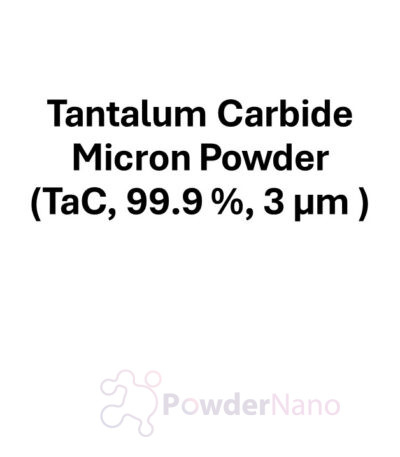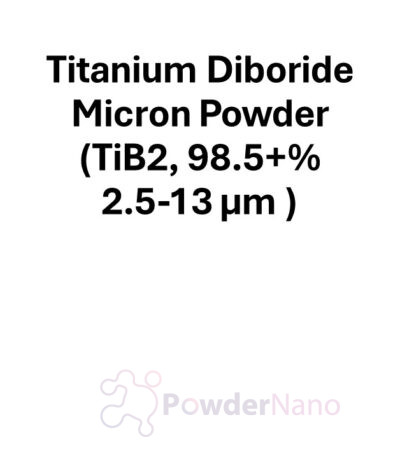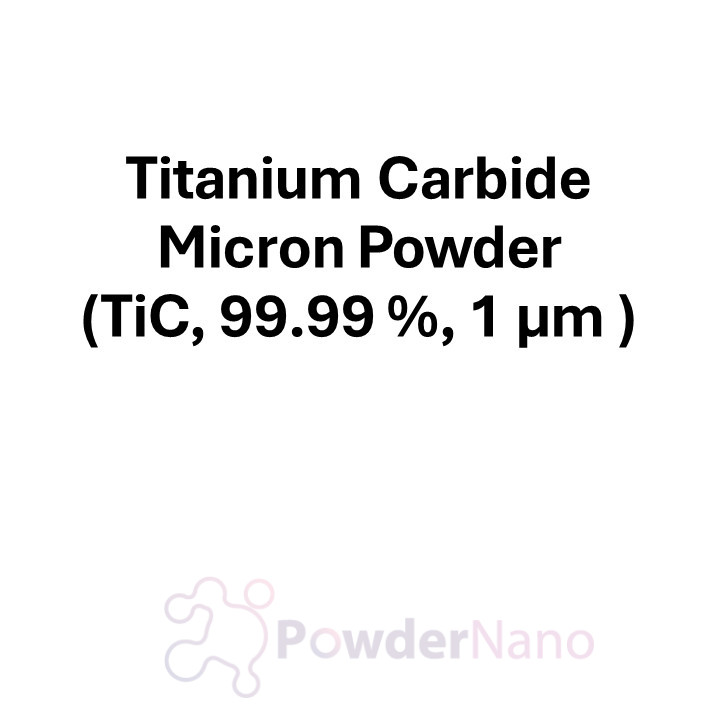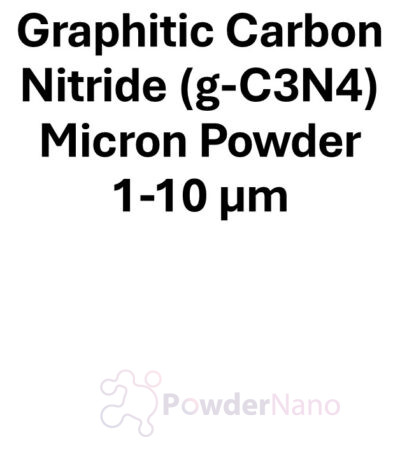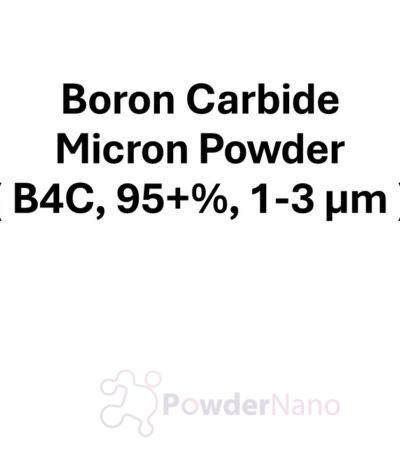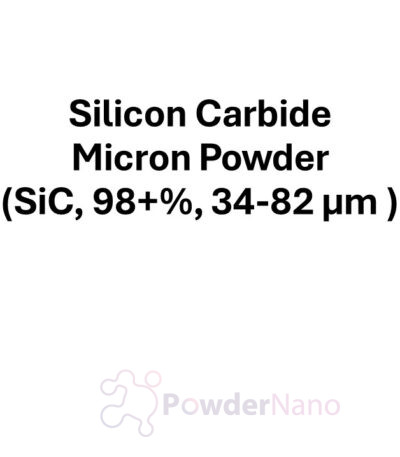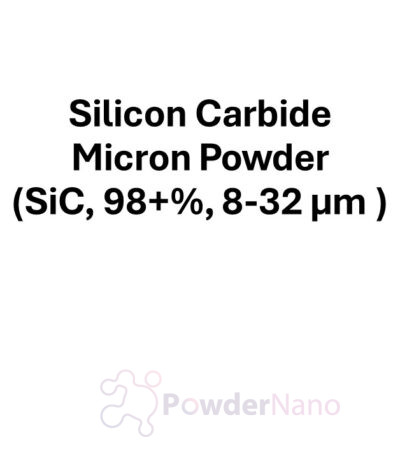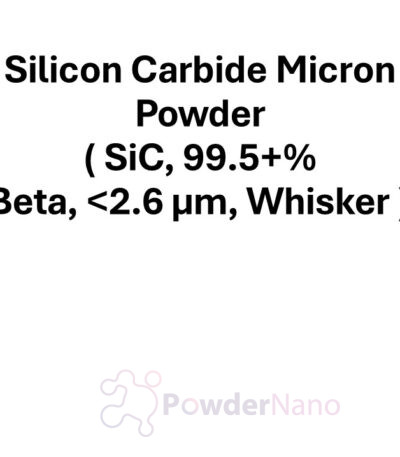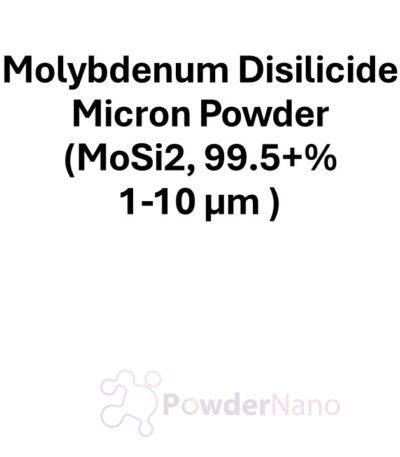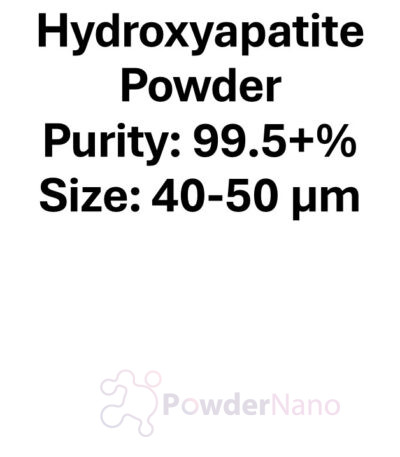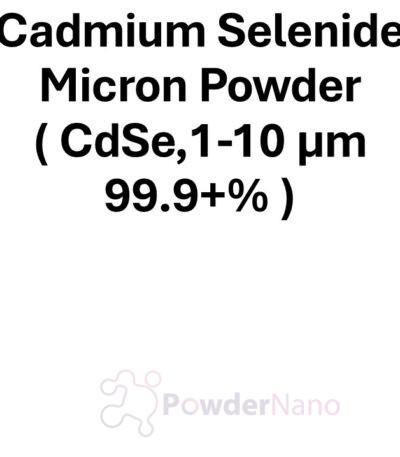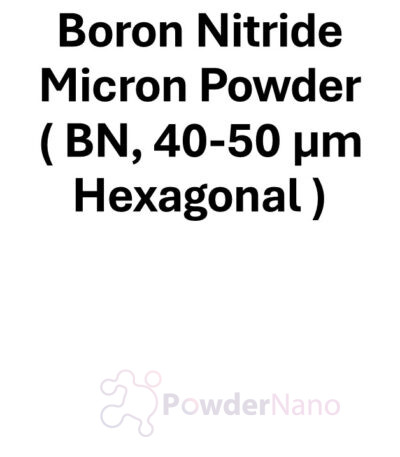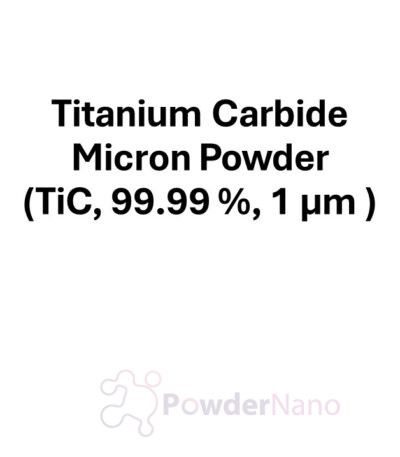Technical Specifications:
- Material: Titanium Carbide (TiC)
- Purity: 99.99% or higher
- Particle Size: 1 µm (micron)
- Shape: Typically irregular or angular, depending on the manufacturing process
- Density: Approximately 4.93 g/cm³
- Melting Point: Approximately 3,150°C (5,702°F)
- Boiling Point: Sublimes at approximately 4,800°C (8,672°F)
Chemical Composition:
- Titanium (Ti): ~80%
- Carbon (C): ~20%
Applications:
1. Hard Coatings and Wear-Resistant Materials:
- Titanium Carbide (TiC, 1 µm) powder is widely used in hard coatings for cutting tools, wear-resistant components, and industrial machinery. Its extreme hardness and abrasion resistance make it an ideal material for applications that require high durability under harsh conditions.
- It is commonly used in abrasive tools, drill bits, milling tools, and cutting inserts for industries like metalworking, mining, and machining, where components face intense wear.
2. Composite Materials:
- TiC is used in the production of ceramic matrix composites (CMCs) and metal matrix composites (MMCs) to enhance their mechanical properties, including strength, fracture toughness, and wear resistance.
- The 1 µm powder size is ideal for improving the properties of high-performance materials used in aerospace, automotive, and defense applications where both light weight and high strength are required.
3. Cutting and Abrasive Tools:
- Due to its hardness and resistance to wear, TiC is used in the manufacture of cutting tools and abrasive tools, such as grinding wheels, sanding disks, and polishing compounds.
- The small 1 µm particle size ensures that the carbide is finely distributed, improving the precision and effectiveness of the tools in abrasive blasting, polishing, and surface finishing applications.
4. Protective Coatings:
- Titanium Carbide coatings are used to improve the wear resistance and corrosion resistance of industrial components. The 1 µm powder is used in thermal spraying or PVD/CVD processes to create coatings on cutting tools, machinery parts, and engine components.
- These coatings protect components used in oil and gas, mining, automotive, and chemical industries from abrasion, erosion, and high friction.
5. Aerospace Components:
- Due to its high melting point and thermal stability, TiC is used in aerospace applications where materials are exposed to high temperatures and mechanical stresses. TiC coatings are used in turbine blades, engine components, and thermal protection systems in aerospace and aviation.
- It helps increase the performance and longevity of parts in jet engines, turbines, and other high-temperature applications.
6. Electronics and Conductive Materials:
- Titanium Carbide is used in electronic devices and high-temperature systems due to its electrical conductivity. The 1 µm powder is used in conductive coatings and resistive films for power electronics, circuit boards, and semiconductors.
- Its ability to withstand high temperatures and provide thermal conductivity makes it ideal for components used in high-power electronics.
7. Nuclear Applications:
- TiC is used in nuclear reactor components, such as fuel cladding and control rods, due to its high thermal stability, radiation resistance, and mechanical strength.
- TiC’s resistance to thermal and radiation-induced degradation makes it a valuable material for nuclear fuel technology and high-temperature reactors.
8. Superhard Materials:
- Titanium Carbide is used in the production of superhard materials that are required for cutting, grinding, and abrasive finishing of hard-to-machine materials such as high-strength steels, composites, and ceramics.
- The fine 1 µm powder enhances the hardness and stability of these superhard materials, which are used in diamond tools and other precision machining equipment.
9. Medical Devices:
- Due to its biocompatibility and wear resistance, TiC is sometimes used in the production of medical devices, such as artificial joints, dental implants, and prosthetics.
- Its corrosion resistance in biological environments makes it suitable for applications that require long-term durability and reliability.
10. Research and Development:
- TiC is also extensively used in research and development to explore new applications in high-performance materials. Its combination of hardness, high melting point, and corrosion resistance makes it an ideal material for the study of advanced composites, nanomaterials, and coatings.
- Researchers use TiC in the development of cutting-edge technologies for industries such as aerospace, electronics, energy, and materials science.
Summary:
Titanium Carbide Micron Powder (TiC, 99.99%, 1 µm) is a high-performance material with exceptional hardness, thermal stability, wear resistance, and corrosion resistance. Its fine particle size makes it ideal for abrasive materials, coatings, composites, and high-performance tooling. Additionally, it plays a critical role in aerospace, nuclear technology, electronic devices, and medical applications. TiC’s unique properties ensure it is a vital material in industries requiring precision, high strength, and extreme performance under harsh conditions.
